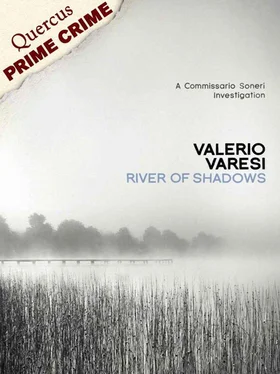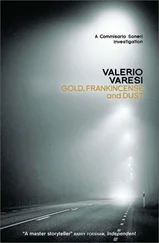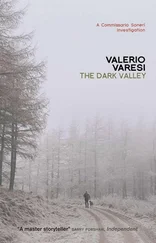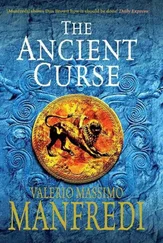Valerio Varesi - River of Shadows
Здесь есть возможность читать онлайн «Valerio Varesi - River of Shadows» весь текст электронной книги совершенно бесплатно (целиком полную версию без сокращений). В некоторых случаях можно слушать аудио, скачать через торрент в формате fb2 и присутствует краткое содержание. Жанр: Полицейский детектив, на английском языке. Описание произведения, (предисловие) а так же отзывы посетителей доступны на портале библиотеки ЛибКат.
- Название:River of Shadows
- Автор:
- Жанр:
- Год:неизвестен
- ISBN:нет данных
- Рейтинг книги:5 / 5. Голосов: 1
-
Избранное:Добавить в избранное
- Отзывы:
-
Ваша оценка:
- 100
- 1
- 2
- 3
- 4
- 5
River of Shadows: краткое содержание, описание и аннотация
Предлагаем к чтению аннотацию, описание, краткое содержание или предисловие (зависит от того, что написал сам автор книги «River of Shadows»). Если вы не нашли необходимую информацию о книге — напишите в комментариях, мы постараемся отыскать её.
River of Shadows — читать онлайн бесплатно полную книгу (весь текст) целиком
Ниже представлен текст книги, разбитый по страницам. Система сохранения места последней прочитанной страницы, позволяет с удобством читать онлайн бесплатно книгу «River of Shadows», без необходимости каждый раз заново искать на чём Вы остановились. Поставьте закладку, и сможете в любой момент перейти на страницу, на которой закончили чтение.
Интервал:
Закладка:
“You’ve got her on a good day. If she hadn’t wanted to talk to you, she would have already turned away.”
Soneri pulled up a chair and sat facing the woman, who greeted him with a respectful but wary nod. It was clear she had spent her whole life in a little homeland of her own which had been continually invaded and finally swept away by the dredgers.
“I can understand your dialect. It’s very like mine,” the commissario said, inviting her to speak freely.
“So you’re not a southerner?” she said, in the harsh intonation of the people of the Po.
Soneri shook his head.
“What do you want to know? In all my life, I’ve seen only boats and water.”
“Did you know that Anteo has disappeared?”
“They told me.”
“You knew him well. Do you have any idea what might have become of him?”
“He’ll have fled in the direction of Brescia, same as after the war. Those communist dogs…”
“Who?”
The old woman looked up, her look filled with pride and hatred. “The ones that were in the partisans. A lot of them died, as God willed. Others got away after 1946, but before that they did all kinds of things.”
“Are any of them still here?”
Maria made an affirmative sign with her hand. “Barigazzi stayed on, and it was him that brought along that gang of Reds. Twice they burned down my cabin, but the carabinieri didn’t want to know. They know the Po well, and they know the right doors to knock all along the riverbanks.” Maria’s breasts were heaving with rage. In spite of her years, a savage force emanated from that body made almost masculine by labour.
“Barigazzi says that in the days of Mussolini he was only a boy.”
“He was sixteen and went around with a pistol. It was him who killed Bardoni so as to take his boat which was moored at Stagno. Everybody knows that.”
“So how did Anteo get away?”
“I’ve told you. For a couple of years he was in Val Camonica.”
“And later?”
“Fortunately the waters calmed down, but he was always on the alert. He sailed by night and slept by day.”
“Was there some particular reason why they had it in for him?”
“When you’re talking about a war, there is always a reason for hating. The Fascists did their round-ups, and the other side ran off like rabbits, but then they struck back treacherously.” The woman grew more embittered as she spoke.
“As far as you remember, did Tonna take part in the reprisals?”
“How should I know? I spent years on my island, never moving off it. Only the floods could make me leave. The world is so evil, it’s better to stay huddled in a corner.”
“Why did Anteo come to see you?”
Only after speaking these words did Soneri realize that he had touched a very private nerve.
The old woman bridled, but immediately pulled herself together. “Neither of us spoke very much, but we were always in agreement. During the day, while he was asleep, I kept watch. He trusted me, especially since we were on an island in the middle of the Po.”
“So he felt threatened, even in recent times?”
“I told him to trust nobody, but he always said the world had changed. He even started going to the club that Barigazzi went to, saying that it was time to draw a line under the past. He said we were all poor old folk who should be getting ready to leave everything behind, and that we should toss all our grudges into the Po. He came to see me whenever he could and always asked me to come with him on his barge. I told him that at his age he should be thinking of moving on to dry land. So, together…but he was not happy with his feet on the ground, he preferred to be afloat. He used to say that the years he had spent in the mountains had been harder for him than the war, because he had had to live between rocks and peaks. That was one of the reasons he came to see me on my island. The only kind of land he could put up with was land surrounded by water.”
“You could have made a new life for yourselves somewhere near the sea.”
“We thought about that, but he was not fond of water with no flow, or water that battered against the walls. He wanted the reliable water of the river, water that knows where it’s going. He even had a plan for restructuring his barge and making it into a house where we could live when it wasn’t possible to live at my place. But then they came and even swept away the island, so here I am now and I don’t know where he is.”
“Who destroyed the island?”
“The people in the co-operative. The communists,” she said, almost spitting.
“Did they attack with the dredgers?”
“There was no need to attack. All they had to do was modify the course of the stream so as to make it erode the island. It disappeared under my feet, metre by metre. The co-operative knew what it was doing alright. They had their ways and means of obtaining a licence to dredge sand in a place that could only ever give them a return of half of what they’d spent. They paid a fortune just to get rid of the island. When finally I had to leave, they were all lined up along the embankment celebrating. As I went by, they were chanting ‘Bandiera Rossa’, and they’d hung a real red banner from the jib of the dredger.”
The old woman had turned livid and her skin had taken on the colour of silt. The patient in the next bed looked at her in fear and began to scream. Two male nurses took hold of her by her arms, while Maria cast a glance of pure contempt in her direction. It was obvious that she would have gladly struck her across the face. Immediately afterwards, Soneri found himself the object of equally harsh looks from the two men in white coats. He went up to Maria, patted her gently on the back and made his way out.
6
Once again the strains of “Aida”. Even before Nanetti could begin speaking, Soneri heard his laboured breath.
“Have you been swimming across the Po?”
“To get me back on to the embankment across that gangway, they had to call out an extra patrol. We’re going down big with the carabinieri!”
“Don’t you worry. You’re not known as a man of action, but you do represent the intellectual branch of the inquiry.”
“You could spare me these little jibes. You make me feel ready for a care home.”
“What did you make of the barge?”
“There was all kinds of rubbish in the hold. There must have been a whole army of poor buggers down there. Including children.”
“Tonna was not transporting grain of any kind — or anything else. His cargo was illegal immigrants,” the commissario said.
“Got any proof?” Nanetti said with his usual scientific punctiliousness.
“No, but it seems quite clear to me. He went up and down from the mouth of the river using as cover bills of lading drawn up by some compliant wholesale merchant. Officially he was transporting grain, but in fact he was carrying people who had to be kept out of sight. The ideal cover, the more you think about it: from the Adriatic, where the ships dock, to the industrial heart of the country where it is much easier to get fixed up. The whole thing done by a mode of transport which is much less risky than lorries or trains. No-one checks anything on the Po.”
“He’d found a way of living and maintaining his barge,” Nanetti said. “I’ve also made some other discoveries which I’ll tell you about later.”
As he put his mobile back in his pocket, Soneri wondered what the trafficking in illegal immigrants had to do with the disappearance of Tonna. He was still gathering information about him and his life without managing to make headway over where he was or who had killed his brother. He walked over to the embankment. Now that the floods had subsided and the Po was growing less turbulent day by day and settling back into its own riverbed, gangs of workmen were removing the sandbags.
Читать дальшеИнтервал:
Закладка:
Похожие книги на «River of Shadows»
Представляем Вашему вниманию похожие книги на «River of Shadows» списком для выбора. Мы отобрали схожую по названию и смыслу литературу в надежде предоставить читателям больше вариантов отыскать новые, интересные, ещё непрочитанные произведения.
Обсуждение, отзывы о книге «River of Shadows» и просто собственные мнения читателей. Оставьте ваши комментарии, напишите, что Вы думаете о произведении, его смысле или главных героях. Укажите что конкретно понравилось, а что нет, и почему Вы так считаете.












